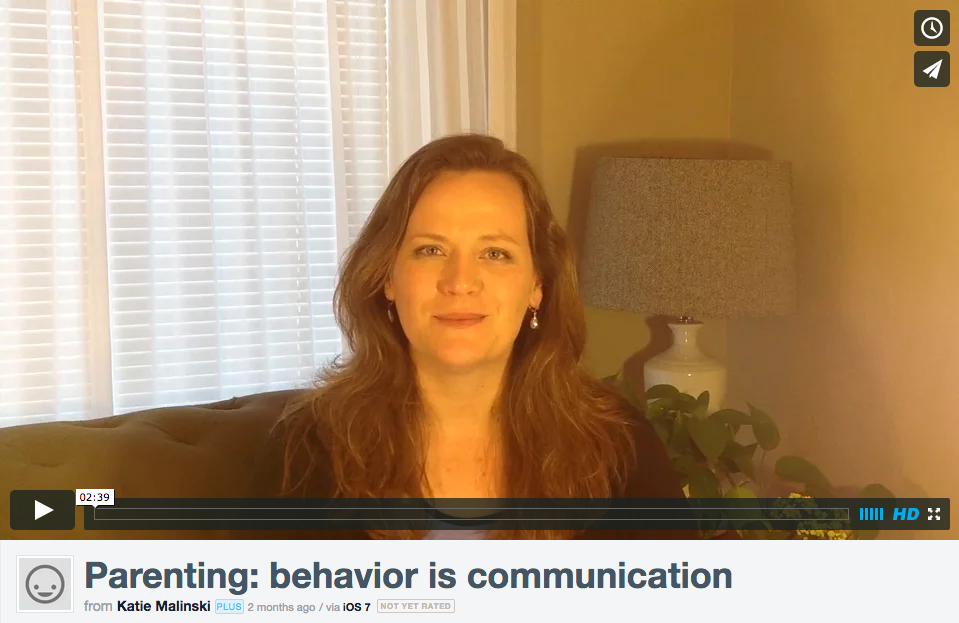Behavior is Communication–Video
The Arc of the Tantrum video has been hugely popular, so I've made another one. This one is on a topic I speak about in various ways all the time: Behavior is Communication. Click below for 2 minutes and 38 seconds' worth of coaching on understanding your child's misbehavior. (and see directly below for a rudimentary transcript.) Behavior is Communication, notes from [...]
The kids who need the most love will ask for it in the most unloving ways
I snapped a picture of this quote on the wall at the Magellan International School the other day, and posted it on Facebook. A week or so later, it had been shared by 68 people, and viewed by nearly 7000. Obviously, this quote resonates for many of us. One of the first things I tell most parents that I work [...]
Are you going to let her get away with that?
True personal story: When my oldest daughter was about 8 months old, she got over-stimulated and grabbed an adult relative hard enough to cause pain. We pulled her off, apologized, went into another room and helped her calm down. About 20 minutes later, I apologized for my daughter's behavior again to my relative. Her response surprised me. She said: "Are you going to let her get away with that? Shouldn't you give her a little swat on the butt?"
How to deal with a puberty-crazed teen
A reader asks: "How do you deal with a tween or teen that you know is acting badly because of puberty mood-swings? For that matter, how do you even talk to a puberty-crazed teen? They usually don't make any sense." So how do you deal with a puberty-crazed teen? Very, very carefully. ;^) Well, I’m joking there, but it’s a good serious answer, too. Here are some thoughts to keep in mind when thinking about or interacting with your teenager or pre-teen:
10 ways to help your child develop a positive self-concept
A mom asked me on Facebook the other day for recommendations on how to foster a positive self-concept for her kids. I thought it was such a great question that I'm sharing my answer here.
If not punishment, then what?
I don’t spend much time advising parents on how to punish more effectively. In fact, I tend to tell parents that I am not a big fan of punishment at all. A parent rightfully asked me the other day: “Well then, if not punishment, what DO we do?
Q: Should my child be allowed to have a TV/computer in their room?
Question: Should my child be allowed to have a TV/computer in their room?Answer:I advise against it. Three thoughts regarding why: It limits or reduces personal communication and interaction with family members. Sometimes quality time is plain-ole quantity time!P*rnography on the internet. Yes, you've got parental controls installed. Yes, you don't think your child knows about it/is interested in it yet. [...]
3 Parenting Tips Worth Repeating
Who has time to read an entire parenting book these days? It's amazing how much time & energy it takes to chew through a 350 page epic on how you "should" parent.
“Raising Cain”, the prefrontal cortex, and pretend violence…
I was recently watching a wonderful PBS documentary based on the book "Raising Cain," and was struck by a particular comment. The narrator quotes current brain research that finds that the pre-frontal cortex, the part of the brain that controls impulse control, isn't fully developed at age 18. (More on the pre-frontal cortex here.)This is such a good message for [...]

